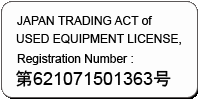NEWS : TPP nations grapple with Trump threat as China sees opening
November 21, 2016 LIMA, Peru - With U.S. President-elect Donald Trump threatening to kill the Trans-Pacific Partnership, member nations are scrambling to find a way forward even as China tries to expand its influence in America's absence.
U.S. President Barack Obama, here for the Asia-Pacific Economic Cooperation forum, made a fevered pitch for the ratification of the pact, a key part of his strategic pivot to Asia. Meanwhile, his Chinese counterpart, also attending the summit, urged Asian nations to join a separate initiative by Beijing to form a pan-Asian trade agreement. China is not part of the TPP.
< Keeping the TPP alive >
The U.S. is crucial to the TPP, Obama told leaders of the other 11 member nations Saturday. But there seems to be no recourse for him but to count on international pressure to force U.S. Congress to ratify the pact.
Trump has avoided mentioning the TPP since his election Nov. 8. With billionaire investor Wilbur Ross being mentioned as possible commerce secretary, hopes have been raised among Japanese trade negotiators that the president-elect will take a more pragmatic approach once in office.
At the same time, Trump is unlikely to abandon one of his signature campaign promises right away, leading some to adopt a longer view. "It is best not to make a fuss about it for a while," said a senior Japanese government official involved in TPP policy. The pact "may take effect in two years or three years, but for now we should try to maintain the status quo," he said.
If Trump declares a U.S. exit from the TPP on day one as he has pledged to do, that would spell the end of the trade pact. Fearing this, Japanese Prime Minister Shinzo Abe urged other nations not to abandon ratification procedures. The best possible outcome, absent U.S. ratification, is to create a situation in which "the TPP does not take effect, but is not dead either," as a government source puts it.
There is precedent. Obama had opposed the U.S.-South Korea free trade pact agreed on in 2007, but supported it after taking office. The U.S. ratified the agreement four years later, after renegotiating some parts. As long as Trump does not completely kill it off, there is always some hope.
Apart from the U.S. auto industry, which is staunchly opposed to the deal, many in American industry are in favor of the TPP. Both sides are certain to launch aggressive lobbying.
The TPP is the first multilateral free trade pact that has spelled out e-commerce promotion and the protection of intellectual property. Its significance is in the trade rules for data and services, rather than tangible goods. Asian nations are negotiating multiple trade agreements other than the TPP. Even if the TPP does not take effect, it is already serving as a prototype.
But if the pact remains tabled for several years, other nations may give up on waiting for Trump to change his mind, warns a U.S. commerce source.
< China flexing its muscles >
In the meantime, Beijing is intent on exploiting the anticipated U.S. retreat, through a different Asia-Pacific trade agreement -- the Regional Comprehensive Economic Partnership, which includes China but not the U.S.
China favors less-stringent trade pacts that are more palatable to developing economies in Asia. Chinese President Xi Jinping met with leaders of Vietnam and countries hoping to join the TPP, including the Philippines. He told reporters that Beijing is intent on pushing for a far-reaching Free Trade Area of the Asia-Pacific. Xi is also scheduled to meet with Peruvian President Pedro Pablo Kuczynski after the APEC meeting.
Both the RCEP and TPP are aiming for an eventual broad Asia-Pacific free trade area, albeit through different routes. China wants to lead the process through the RCEP. Kuczynski seems to be already on board, suggesting his support for a new Asia-Pacific trade pact that does not include the U.S.
With China stepping up behind-the-scenes maneuvering to get TPP participants to switch teams, the ambitious trade agreement faces an increasingly precarious future.
TAKESHI KAWANAMI and RYOHEI YASOSHIMA, Nikkei staff writers
2016-11-20 22:44:06
View All News






